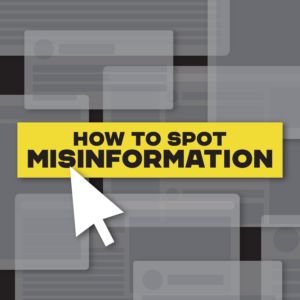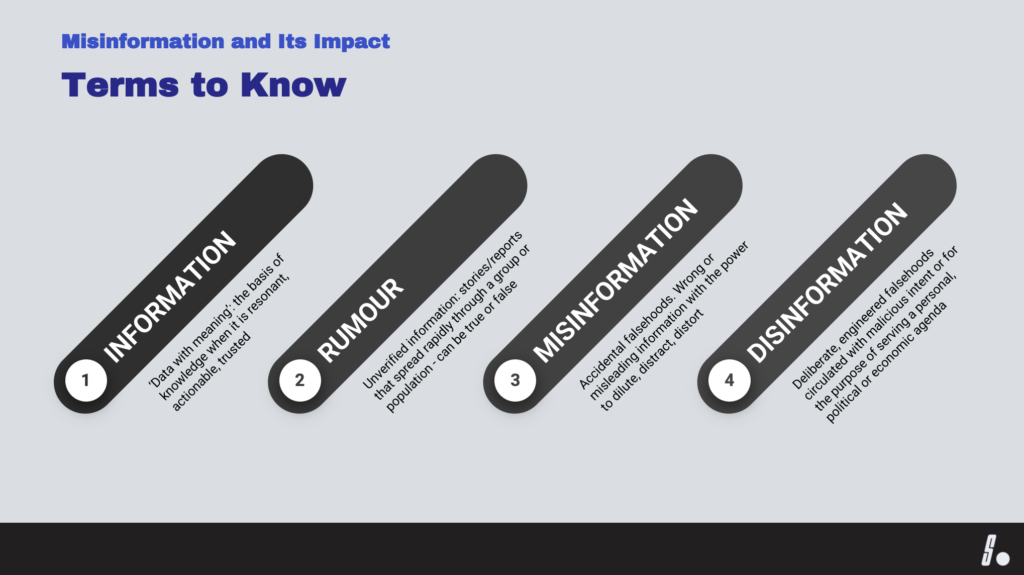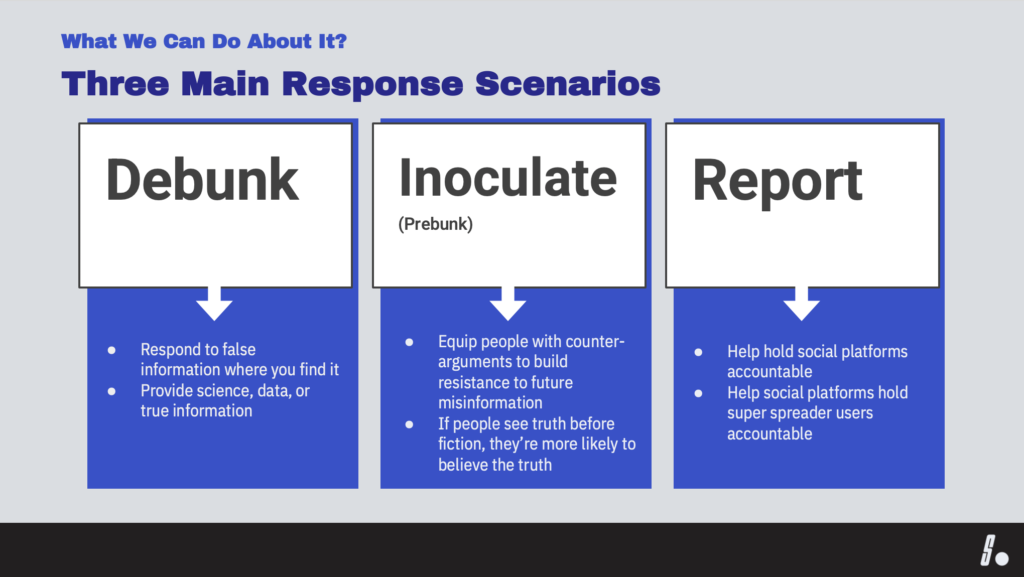Combatting Vaccine Misinformation In the COVID-19 Infodemic: Resources & How to Respond
With the pandemic's exacerbation of the spread of false narratives on vaccines, Shot@Life partnered with the United Nation's Verified Initiate to combat misleading information.

In many ways, the COVID-19 pandemic was unlike many other pandemics the world had experienced prior, including the 1918 influenza pandemic that killed more than 50 million people. For one, the COVID-19 pandemic was the first and only pandemic that used technology and social media to keep people safe, informed, productive, and connected on a monumental scale.
Rather than staying offline in our homes, we video-chatted our friends to check in on them, read countless articles on the latest case numbers and county guidelines, and spent time on social media following TikTok trends showing people singing “Happy Birthday” while washing their hands for 30 seconds. Still, technology’s dark underbelly also revealed itself during the pandemic: certain individuals took to the Internet to undermine measures to control and end the public health crisis by spreading vaccine disinformation. What happened?
Understanding the Infodemic
infodemic (noun): An overabundance of information, both online and offline, that includes deliberate attempts to disseminate wrong information to undermine the public health response and advance alternative agendas of groups or individuals. | Source: World Health Organiation (WHO)
At the beginning of the pandemic, many specifics about the coronavirus were unknown. Pandemics occur in rapidly evolving settings, meaning the early stages involve constant learning as researchers and medical professionals gain more information about the nature and spread of the virus. It’s only natural that people would feel fear and anxiety.
As early as February 2020, WHO’s director-general Tedros Adhanom Ghebreyesus made an important statement that “we’re not just fighting a pandemic; we’re fighting an infodemic. Fake news spreads faster and more easily than this virus and is just as dangerous.” Even prior to the pandemic, misinformation, fake news, and conspiracy theories had already been widespread on the Internet. When COVID-19 was declared a pandemic, things escalated. According to Project VCTR, in 2020 vaccine opposition increased by 99.8% across monitored data sources, with a 200% increase in opposition on Twitter.
In June of 2020, WHO convened the first-ever Infodemiology Conference in order to discuss the global effects and management of infodemics with communications experts, scientists, and policy advisors.
Misinformation vs. Disinformation
It’s important to distinguish between vaccine misinformation and vaccine disinformation. Although misinformation also describes false or misleading information that is disseminated, it is usually accidental in nature. Sometimes, people who are vaccine-hesitant or simply don’t remember all the facts will spread misinformation. On the other hand, vaccine disinformation is ill-intentioned, consisting of deliberate, engineered falsehoods that are used to decrease trust in public health experts or science.
Vaccine disinformation and misinformation can come in all forms, usually with individuals motivated to monetize, polarize, or politicize science. At first, it can seem insidious. For example, isn’t it only fair that we question COVID-19 vaccines that were developed on an accelerated timeline? However, understanding that all COVID-19 vaccines tested in the U.S. went through all the standard rigorous, phased testing as any other vaccine — with efficacy rates in the high 90-percentile — should build vaccine confidence. Those trying to sow doubt instead will manipulate some of this information, for example, saying that some steps were skipped or even come up with conspiracy theories about the nature of the vaccine.
And who exactly is spreading this vaccine disinformation? A recent study found that 65% of vaccine misinformation was being spread on social media by the Disinformation Dozen, a group of just 12 individuals with influence.
“We’re not just fighting a pandemic; we’re fighting an infodemic. Fake news spreads faster and more easily than this virus and is just as dangerous.” – Dr. Tedros Adhanom Ghebreyesus, WHO Director-General
How to Combat Vaccine Misinformation
Shot@Life’s partner organizations like the United Nation’s Verified Initiative and Stronger are actively working to combat vaccine misinformation online.
Verified encourages people to only share accurate information and fact-based advice online, taking a moment to pause before sharing. They also partner with various media companies to fact-check information online before it is published.
Meanwhile, Stronger is the first vaccine advocacy campaign to focus on the root cause of vaccine hesitancy: misinformation. In addition to sending out a weekly newsletter that tackles the misinformation of the week, and gives individuals ways to respond with accurate information, Stronger hosts trainings for individuals to equip them with the facts. To combat vaccine information, Stronger outlines three main response scenarios to debunk, inoculate, and report any vaccine misinformation online, shown in the graphic below.
There are countless resources online to get accurate information, whether from the WHO, UNICEF, CDC, Gavi, or other trusted organizations. Other helpful resources that Stronger points their advocates to include:
- Healthfeedback.org
- Fullfact.org
- Politifact (Poynter)
- Snopes
- AFP Fact Check
- Mayo Clinic “Expert Answers”
- Fact checks from USA Today, Reuters, AP, etc.
We’re all in this together. After all, fighting vaccine misinformation and disinformation is key to ensure we can secure a healthier future. Without access to trusted information, we will never be able to end the COVID-19 pandemic and bring the world together to fight future diseases.


